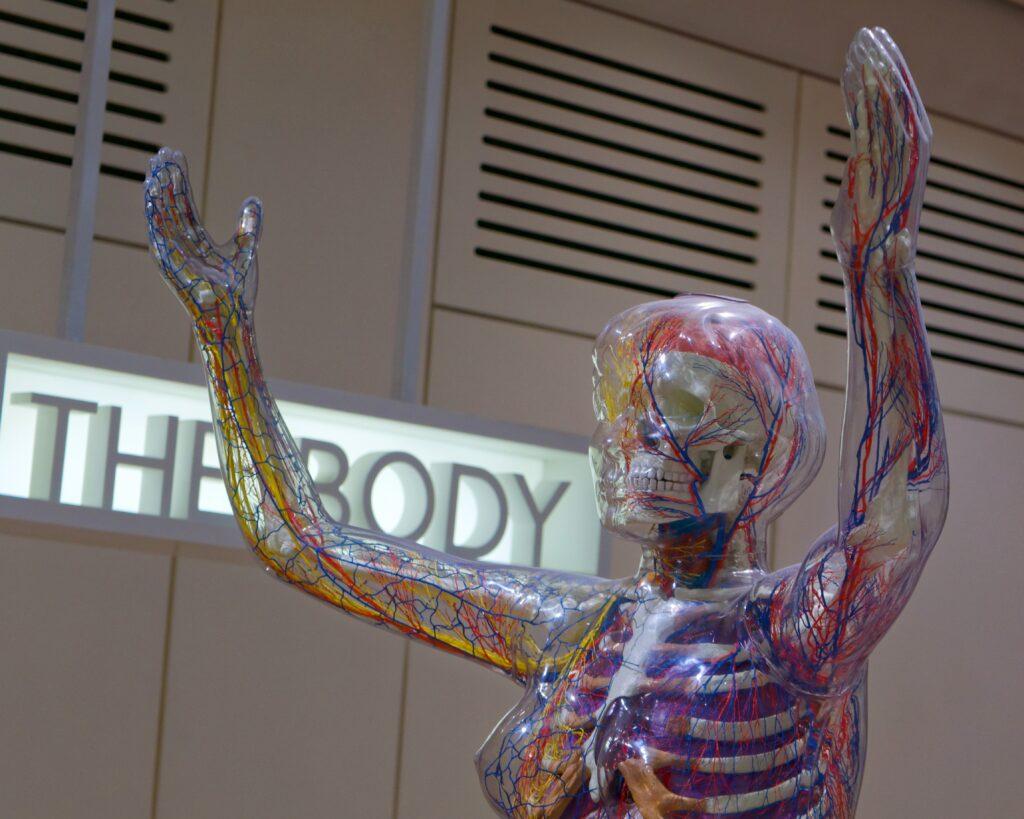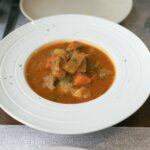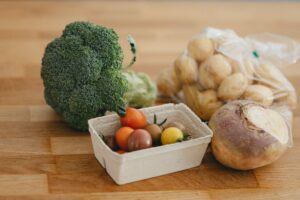WHAT TO EAT AFTER 60?
Listen to what your body is saying
We are often more sedentary in our later years, and because of this slowing down, we need fewer calories and easier to digest foods. In fact, a lot of people naturally start to lose their appetite for things like red meat, which is the most difficult of all foods to digest. This is a clear case of your body telling you what it does/doesn’t need and you should listen to it.

CHANGING DIGESTIVE SYSTEMS
Think of your digestive system as a car engine and how many years it’s been running, turning all that food fuel into usable energy – if only a car would last 60+ years! So it’s easy to see how it eventually gets a little sluggish and tired, starting to have problems digesting certain foods, especially those that require a lot of work to break down.
Medical Discalimer. “Please do not rely on our website for specific medical information. If you have specific questions about any medical matters, you should consult your Doctor or other professional healthcare provider”
We can get away with eating all kinds of stuff when we are younger and our bodies keep on forgiving us but there comes a time when it no longer has the energy to do so. Below is a list of foods that are easy to digest and full of essential nutrients:
- Fish (2-3 x per week, including oily fish)
- Chicken / Turkey 2 x per week)
- Eggs 4 x per week
- Rice, potatoes, pasta, bread (1 x small portion with every meal)
- Beans and pulses such as chickpeas 3 x per week
- Plenty of vegetables (x 5 per day and fruit x 2 per day)

Image – Andrei – Unsplash
Eating lots of vegetables is key as constipation occurs more often as we age. Most vegetables contain insoluble fibre, which allows them to pass through your system, picking up other bits of indigestible food debris and wrapping it up ready to be excreted in a neat, comfortable stool.
The mistake most people make when eating more fibre is not increasing their water intake. This is imperative to make the whole process work otherwise, you will actually clog yourself up more if you don’t give the fibre plenty of fluid to move smoothly through your intestines.
FOODS THAT ARE GOOD FOR JOINTS & FOODS THAT AREN’T
There are several foods that should be avoided if you want to keep your joints healthy, especially if you suffer from arthritis. Here are the main culprits:
- Sugar
- Red meat
- Alcohol
- Salt
- Fried /fatty foods
- Processed Foods. (Ready Meals)
These foods can cause inflammation throughout the body and connective tissue. Keeping them to a minimum, or avoiding them altogether will pay dividends with regard to your joint health and comfort.
There are also some foods which are really good for your joints such as:
- Omega 3 – oily fish, nuts, and seeds
- Brassica vegetables – cabbage, sprouts, kale, leafy greens, broccoli, and cauliflower *
- Olives and olive oil
- Garlic, onions, ginger, and turmeric
- Good old-fashioned bone broth
- Whole grains
- Dark chocolate (hurray!)
All the above are great for naturally decreasing inflammation in the body and adding support to your joints – yes even the chocolate, as long as it’s over 70% cocoa solids!

Eric Zhu
Unsplash
Also, the joy of eating a lovely soup from home-made bone broth. I simply collect and freeze any bones from chicken or other meats I cook. Then when I have a large freezer bag full, I slow-cook them so the collagen in the ends of the bones can slowly release its goodness and taste delicious on a chilly evening.
FOODS THAT KEEP YOUR BONES HEALTHY AND STRONG
Bones require good levels of essential minerals such as calcium, but also avoidance of certain foods which can stop your bones from absorbing calcium, leaving them weak and prone to fractures. A lot of the foods to avoid are the same as listed above for joint health.
Salt is one of the biggest culprits with most people consuming double what they should. Processed foods are the worse carriers of added salt, so if you prepare all your food from base ingredients, you can avoid this danger.
Carbonated drinks can interfere with calcium absorption and encourage excess urination of calcium from our bodies, again this can spell trouble for older bones so go easy on the soda. Try drinking lovely potassium and calcium-rich banana smoothies with a dollop of nut butter for some extra magnesium, or drink vitamin D fortified fruit juice.
Caffeine is another that can weaken your bones, so make sure you don’t have any more than two small coffees a day and don’t overdo the tea, as this also contains caffeine. The milk in a large latte will counter the calcium-loss somewhat.
Foods that are great for your bones include:

Image Annie Spratt – Unsplash
- Anything dairy
- Leafy green vegetables *
- Eggs
- Oily fish
- Good range of colorful fruit
Getting out and exposing your arms and legs to the sun will start your very own built-in factory producing vitamin D, which is essential for bone health. If you don’t see much sun, or you live somewhere too cold for exposure, make sure you take a good calcium and vitamin D supplement, as one helps with absorption of the other.
FOODS TO EAT WHICH HELP FIGHT MUSCLE LOSS
From the age of around 40 years old, we start to decrease in muscle mass at a rate of approximately 10% per decade (1). So the big question of what to eat after 60 needs to address how to preserve muscle right? Well, the truth is that you cannot stop the muscle decrease via food.
The only way to stop muscle wastage is to work it – you need to “use it or lose it”! So, if you find yourself spending a lot of time in front of the TV, or doing anything seated for long periods of time, you need to change NOW!
Walking is a good start but you need to do some form of resistance (weights) exercise. It may sound scary but even if you start doing some sit to stand from a chair or sofa, you can gradually build up to not using your hands, and ‘et voila’, you have learned how to squat! This is a great use of the quadriceps (upper leg) muscles, and as they are the biggest muscle in the body, they burn the most calories.
Most gyms have classes for older populations, from dance-style aerobics to aqua-aerobics. If these aren’t your thing, start using the weights machines but make sure you get good guidance and start light, gradually increasing as it starts to feel easy! Alternatively and something which offers gentle anti ageing benefits is Yoga and Tai Chi. I highly recommend both of these types of exercise, even if mobility is an issue these two interventions are capable of relieving symptoms and in some cases can improve medical outcomes. It is never to late to start.
I often use You Tube tutorials instead of going to the Gym, see the attached You Tube Link. It is free and designed specifically for seniors.
Short 7 Minute Video
25 Minute Slow and Easy Tutorial
Protein complements weight-training and muscle growth. This is basically ANYTHING that comes from an animal. So meat, eggs, milk, and cheese are all great sources. There are also good sources of plant protein such as garbanzos, lentils and soy beans. But go easy on anything soy-based as it can elevate oestrogen levels and has been linked to breast cancer, although the jury seems to be out on this one!
FOODS TO EAT / AVOID DURING MENOPAUSE
Menopause causes BIG changes in the body. Lowering of the hormones oestrogen, progesterone, and testosterone can cause hot flushes, night sweats, low libido, and complete energy wipe-out. All of this can make you feel thoroughly miserable so here are some foods to avoid as they may be making your symptoms worse: I have written an in depth article on post menopause which includes considerable together with additional information. Click here for further details.
- Processed foods
- Spicy foods
- Red meat
- Alcohol
- Salt
- Fried /fatty foods
Although the mood swings and emotions you may have during menopause, and peri-menopause (2), may send you straight towards the wine bottle, you must keep this in check. I have found the worse culprit to be red wine – just 2 small glasses will get me throwing off the sweaty bedclothes halfway through the night, and disturbing my sleep terribly.

Aliona GÛmeniut
Spicy foods will have a similar effect, so ditch the chilli and keep your cool ladies – it’s only for another 10 years!
Foods that are good to consume during these troublesome years are pretty much the same as for joints and bones above but most important is iron. Although you can obtain this from those foods mentioned above, it’s a good idea to take an iron supplement during this time to give you an extra energy boost. Iron supplement tablets can be purchased easily at your local pharmacy. Speak to the pharmacist who will talk you through the best and most appropriate for you.
Most of all, make sure you maintain a healthy weight as this will reduce your risk of any of the above issues.
I have recently (well it took 8 months) to lose 1 stone 8lb or if you are reading in the US thats 22lb. May not sound huge but at only 5ft tall its a substantial percentage of body weight, whilst its not been an easy journey it is certainly easier this time than any previous. I will write about my journey, (which I hasten to add is still ongoing) and hopefully it may inspire you to do something about your issues, (mine were and still are because of joint pain and body image issues).
For those who are still reading thank you.
I would love to hear your comments, please add below and hear how life is treating you
Speak soon Cordelia
Founder of Hey Spring Chicken
Images on my post have all been provided by Unsplash
I would like to thank all the photographers for their art work
The feature image is stock from Canva
*As an IBS sufferer I am aware that some vegetables can cause a flare up. Take note if that is the case for you
References:
(1) https://www.heart.org/en/healthy-living/healthy-eating/eat-smart/sodium/how-much-sodium-should-i-eat-per-day
(2) https://www.ncbi.nlm.nih.gov/pmc/articles/PMC4066461/
(3) https://www.health.harvard.edu/womens-health/perimenopause-rocky-road-to-menopause

